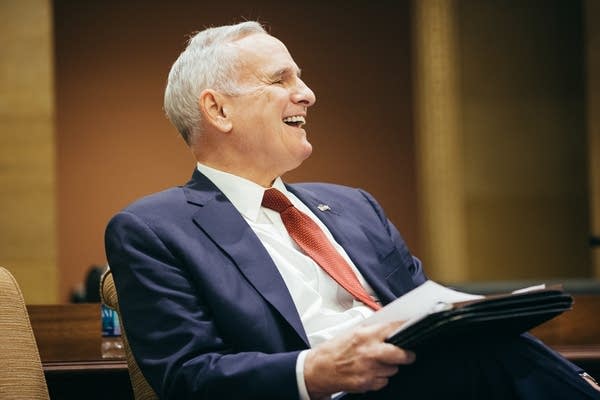Five takeaways from the week in Minnesota politics

Gov. Mark Dayton laughs at a remark form Comissioner Myron Frans before taking the podium to address questions about the budget and his health on Jan. 24, 2017.
Evan Frost | MPR News
Go Deeper.
Create an account or log in to save stories.
Like this?
Thanks for liking this story! We have added it to a list of your favorite stories.


